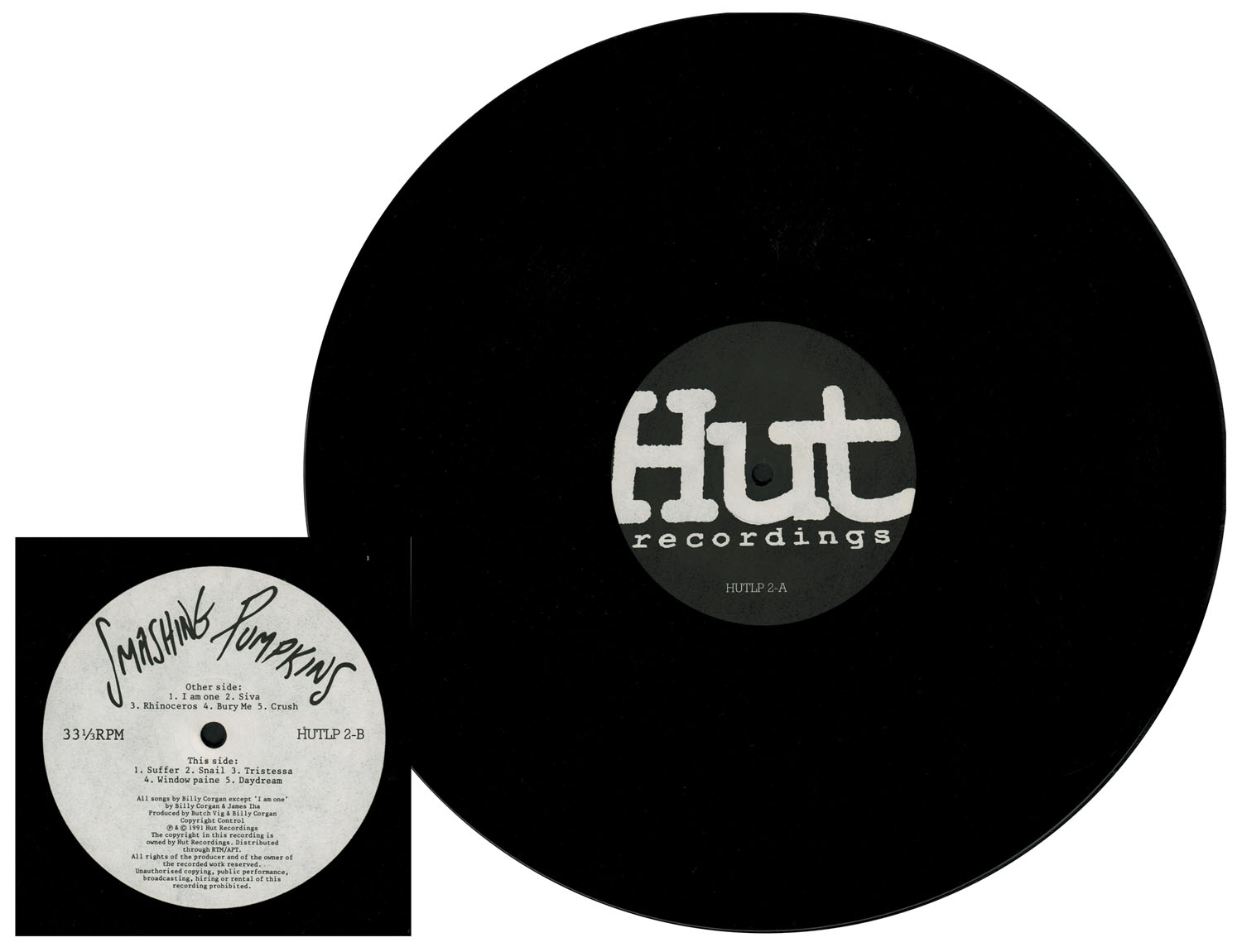

The remastering jobs may be flimsy justification for repackaging old records, but it’s evident from an examination of the contents that equal amounts of loving care went into crafting what now sits on the store shelves. Nestled in gorgeous, candy-gloss lift-top boxes, each record is polished up a tad (I couldn’t find my original copy of Gish for a comparison, but I can verify that Siamese Dream is slightly louder and a tad sharper, with the only striking change being the removal of a barely-audible snippet of a televangelist sermonizing from the end of “Soma”) and served with a second CD of bonus tracks, a DVD containing a period performance from Chicago’s Metro venue, liner notes with track-by-track pontificating by the Corgster himself, and a heaping pile of striking postcards. At the same time Corgan is busy polishing the latest Teargarden by Kaleidyscope installments, the public is provided with new remastered deluxe editions of the band’s first two albums, Gish (1991) and the breakthrough Siamese Dream (1993), the recordings responsible for the ascendancy of the classic Pumpkins line-up-singer/lead guitarist/chief songwriter Corgan, second guitarist James Iha, bassist D’arcy Wretzky, and drummer Jimmy Chamberlin - to alt-rock supremacy. It’s hard not to feel that the Pumpkins are a shadow of their former glory.Īt their creative peak, the Smashing Pumpkins were glorious, even if Corgan’s whiny singing voice and his flowery pretensions would always remain “love them or leave them” qualities for many. The extremely devoted among the Pumpkins faithful will argue until they are blue in their faces in favor of the 2007 comeback LP Zeitgeist and the currently-ongoing Teargarden by Kaleidyscope song cycle, but everyone else sees Corgan carrying on without any of his original bandmates as he and his latest roll call run through the songwriter’s dodgy new material. For a while, the Chicago group formed contemporary alternative rock’s Holy Trinity with Nirvana and Pearl Jam, but the Pumpkins have since hastened down the path toward irrelevancy, due to distracting internal squabbling that led to line-up shuffles and a 2000 breakup, all while frontman Billy Corgan’s obstinate inclination to follow his muse has yielded wildly mixed results. It’s a sad fact: the Smashing Pumpkins’ stock has plummeted drastically since the band’s popularity crested in the mid-1990s.


 0 kommentar(er)
0 kommentar(er)
